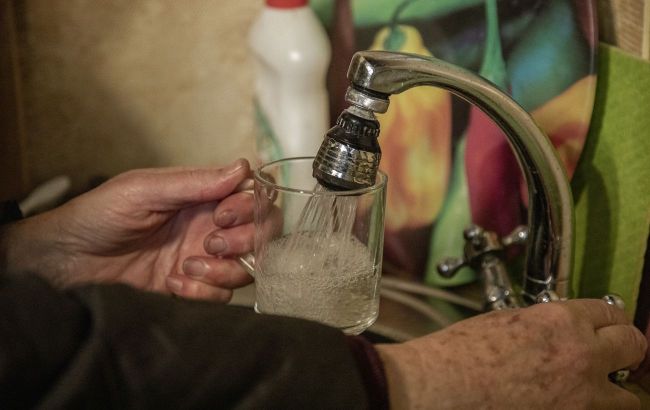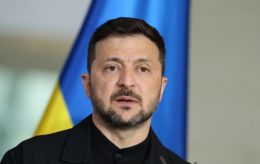EU allocates €30 million to restore water supply in Ukraine's Kryvyi Rih
 Photo: The EU has allocated €30 million to restore water supply in Kryvyi Rih (Getty Images)
Photo: The EU has allocated €30 million to restore water supply in Kryvyi Rih (Getty Images)
The European Union has announced €30 million in funding to restore the water supply system in Kryvyi Rih, which was damaged after Russia destroyed the Kakhovka Hydroelectric Power Plant dam in 2023, according to the press service of the EU Delegation to Ukraine.
The project, to be implemented by the International Organization for Migration (IOM), was announced on the second anniversary of the Kakhovka dam's destruction.
"Russia's attacks have severely damaged Ukraine's water systems, leaving entire cities at risk. With this project, the EU is helping restore vital services and reduce the vulnerability of communities like Kryvyi Rih," said Jocelin Cornet, Head of Section Reconstruction, energy, infrastructure and environment.
Before the disaster, Kryvyi Rih received water from the Kakhovka Reservoir. After its loss, the city has relied on degraded and insufficient alternative sources.
According to the statement, the new project will improve water quality, reduce energy consumption, and minimize water loss in the city's water supply network. In partnership with the Kryvyi Rih water utility and local authorities, the IOM will repair pumping stations, replace pipelines, and enhance the efficiency of the city's water treatment plant.
The EU noted that over the next two years, the project will benefit up to 700,000 residents of Kryvyi Rih, including around 80,000 internally displaced persons.
Kakhovka dam explosion
On June 6, 2023, Russian forces blew up the Kakhovka Hydroelectric Power Plant dam, causing a man-made environmental disaster. The destruction led to widespread flooding across parts of Kherson, Mykolaiv, Dnipropetrovsk, and Zaporizhzhia regions, where nearly 900,000 people lived.
Nearly 700,000 Ukrainians were left without access to drinking water.
At the time, Ukrhydroenergo reported that the power plant was completely destroyed and could not be restored.
In addition, following the explosion and the resulting flood, at least 100 people died in the Russian-occupied areas.

